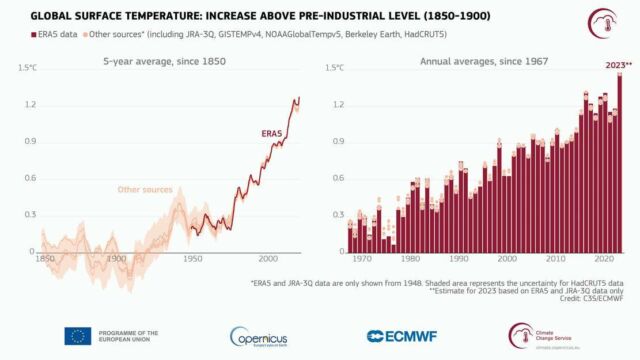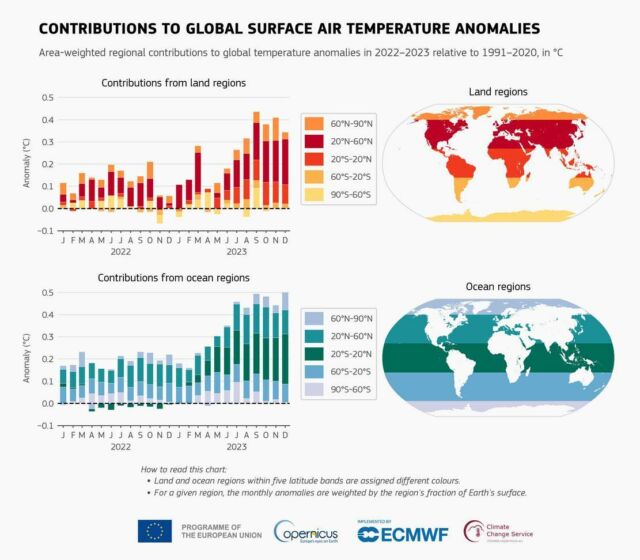2023 was officially the Hottest Year on Record
Copernicus
2023 was officially the hottest year on record, with global temperatures close to the 1.5°C limit.
2023 was officially declared as the hottest year ever recorded, surpassing the previous record-holder, 2016, by a significant margin. This information comes from a recent climate report released by Copernicus, based on data dating back to 1850. The global average temperature for 2023 stood at 14.98 degrees Celsius (58.96°F).
 Copernicus
Copernicus
Global surface air temperature highlights:
2023 is now confirmed as the warmest year in global temperature records since 1850.
The global average temperature for 2023 was 14.98°C, surpassing the 2016 record by 0.17°C.
2023 was 0.60°C warmer than the 1991-2020 average and 1.48°C warmer than the pre-industrial level of 1850-1900.
It is anticipated that a 12-month period ending in early 2024 will likely exceed 1.5°C above the pre-industrial level.
2023 is noteworthy as every single day throughout the year exceeded 1°C above the 1850-1900 pre-industrial level.
Almost half of the days were more than 1.5°C warmer, and two days in November saw temperatures exceeding 2°C for the first time.
Annual average air temperatures were the highest or close to the highest on record across major ocean basins and continents (except Australia).
From June to December in 2023, each month was warmer than its counterparts in previous years.
July and August 2023 set records as the warmest two months ever recorded.
The boreal summer (June-August) of 2023 was also the warmest season on record.
September 2023 stood out with a temperature deviation above the 1991–2020 average larger than any month in the ERA5 dataset.
December 2023 was globally the warmest December on record, with an average temperature of 13.51°C, 0.85°C above the 1991-2020 average, and 1.78°C above the 1850-1900 level for the month.
 Copernicus
Copernicus
source Copernicus



